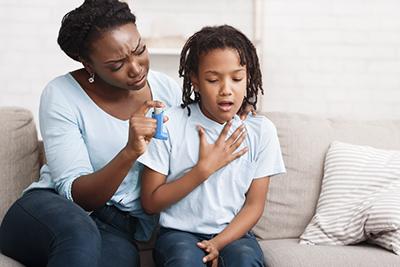Asthma Prevention: A Pediatrician's Guide to Respiratory Health
- posted: Oct. 06, 2023
An asthma attack can be scary, especially if it happens to your child. There are some steps you can take to help prevent an asthma attack. Our pediatrician can tell Read More
Helping Your Child Manage Chronic Conditions
- posted: May 16, 2023
If your child is dealing with a chronic condition, it can affect many aspects of their life. It can be difficult to pay attention in class if they’re dealing with Read More
Managing Asthma in Children: Tips for Parents
- posted: Feb. 15, 2023
When you find out that your child has asthma, it’s important to know that they can still participate in their favorite activities and play just as well as other children. Read More
Managing Asthma in Children: Tips and Techniques
- posted: Jan. 04, 2023
Asthma is a common problem in children, and its effects can be serious. When your child has difficulty breathing, it’s scary for your child and for you. Your pediatrician can Read More
Helping Your Child Live Well With Asthma
- posted: Sep. 02, 2022
Need help controlling your child’s asthma symptoms? Your pediatrician can help. We know that seeing your child cough, wheeze and have trouble taking a full breath can be more than a Read More
Managing Your Child's Asthma
- posted: Jan. 16, 2020
While there is no cure for asthma, there are ways to manage your child’s asthma symptoms and to reduce the risk for a flare-up. Of course, to be able to Read More
Signs Your Child May Have Asthma
- posted: Jul. 17, 2018
Childhood asthma is more common than you might think. In fact, it is the most common chronic disorder in children, according to the Asthma and Allergy Foundation of America. Asthma Read More





